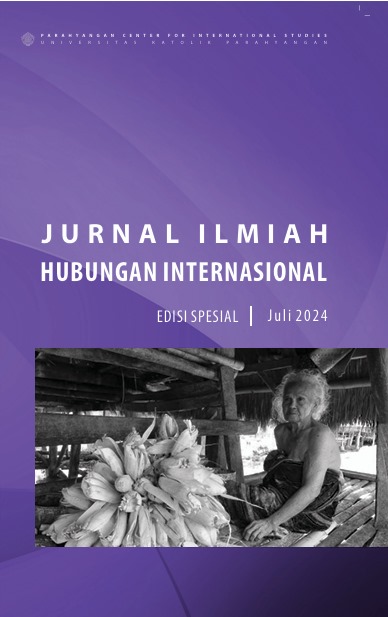Representasi Perempuan di Parlemen dan Legislasi Isu Lingkungan Hidup: Studi Kasus Undang-Undang Nomor 11 Tahun 2020 tentang Cipta Kerja
DOI:
https://doi.org/10.26593/jihi.v1i1.7835.141-156Abstract
Numerous studies indicate that women generally show a greater concern for environmental issues than men and often engage more actively in eco-friendly practices like recycling. The difference in environmental attitudes between genders is thought to arise from societal roles, where women are typically viewed as primary caregivers, and men as primary providers. This highlights the intersectionality of gender and culture in environmental matters. This article examines gender dynamics in environmental policymaking, with a focus on the stance of female legislators on environmental issues. It uses the discussion around Law Number 11 of 2020, known as the Job Creation Law, as a case study. The analysis starts by looking at women's representation in the Indonesian parliament and their legislative behavior on environmental matters. The debate over the Job Creation Law reveals that most female legislators tend to align with the ideologies and interests of their political parties, despite criticisms that the law negatively impacts the environment and working women. The research concludes that having women in parliament does not necessarily lead to laws that prioritize women's and environmental interests. Factors such as a gender-biased political culture and a limited understanding of the importance of integrating gender perspectives in environmental and sustainable development issues contribute to the lack of substantive representation of women in parliament.
Keywords: women in parliament; gender mainstreaming; substantive representation; pro-environmental policy; legislative behaviour
Downloads
Published
Issue
Section
License
Copyright (c) 2024 Jurnal Ilmiah Hubungan Internasional

This work is licensed under a Creative Commons Attribution 4.0 International License.
This journal uses Creative Commons license (CC BY). We allow readers to read, download, copy, distribute, print, search, or link to the full texts of its articles and allow readers to use them for any other lawful purpose. The author must be aware that the article copyrights will be fully transferred to Jurnal Ilmiah Hubungan Internasional only if the article is accepted to be published in the journal through signing of the Copyrights Transfer Agreement. Authors are allowed to resend their manuscript to another journal or intentionally withdraw the manuscript only if both parties (JIHI and Authors) have agreed on the related issue. Once the manuscript has been published, authors are allowed to use their published article under Jurnal Ilmiah Hubungan Internasional copyrights.





